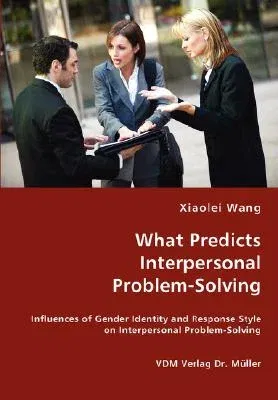Xiaolei Wang
(Author)What Predicts Interpersonal Problem-SolvingPaperback, 25 February 2008

Qty
1
Turbo
Ships in 2 - 3 days
In Stock
Free Delivery
Cash on Delivery
15 Days
Free Returns
Secure Checkout
Print Length
112 pages
Language
English
Publisher
VDM Verlag Dr. Mueller E.K.
Date Published
25 Feb 2008
ISBN-10
3836437740
ISBN-13
9783836437745
Description
Product Details
Author:
Book Format:
Paperback
Country of Origin:
US
Date Published:
25 February 2008
Dimensions:
24.41 x
16.99 x
0.58 cm
ISBN-10:
3836437740
ISBN-13:
9783836437745
Language:
English
Location:
Saarbrucken
Pages:
112
Publisher:
Weight:
190.51 gm

